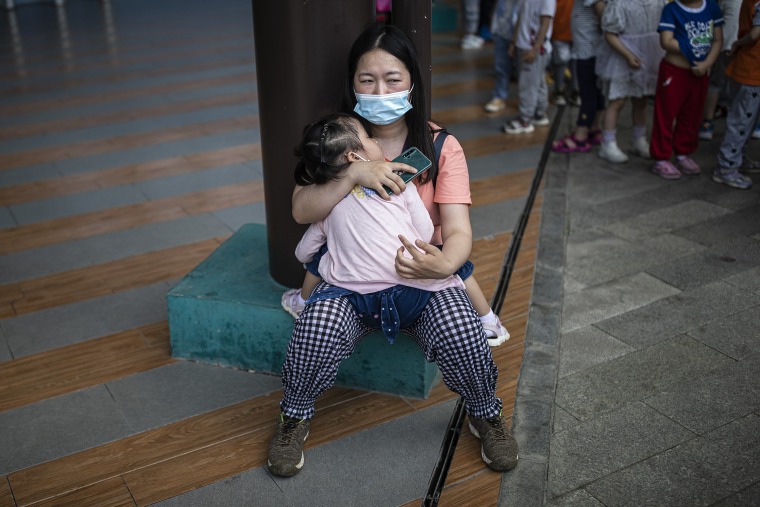China will allow couples to have up to three children amid worries that the number of working-age people in the world’s most populous country is falling too fast, state media reported Monday.
Xinhua news agency reported that the change was approved during a Communist Party Politburo meeting chaired by Chinese President Xi Jinping.
The news follows census data that showed China's working-age population shrank over the past decade while the number of people older than 65 rose, adding strain on the economy and society. It's the slowest growth in decades and could pose a major threat to China’s ambitious economic goals, experts have warned.
“Birth policies will be further improved. Policy that allows a couple to have three children will be introduced with supporting measures, which will improve China’s population structure,” Xinhua reported.
The Communist Party has enforced birth limits since 1980 to restrain population growth, and the dwindling population is partially a result of a one-child policy imposed in 1979. Couples who didn’t abide by its family planning laws faced losing their jobs and being fined. In some cases, mothers were forced to have abortions or be sterilized.
Restrictions were loosened in 2015, after calls to change the one-child policy amid slowing economic growth and warnings of economic issues that could arise from an aging population. Families were then allowed up to two children per family.
However, the liberalization of policies failed to revive the country's declining birthrate. The 2020 census revealed that there were 12 million births last year, down from 14.65 million in 2019, an 18 percent decline, continuing China's descent to a near six-decade low.
Meanwhile, the number of older people also grew to 18.7 percent of the total, up from 13.26 percent a decade ago and about 10 percent in 2000.
Download the NBC News app for breaking news and politics
Some experts warned that the government's proposal will likely fall short because it fails to recognize the reasons behind China's drastically declining birthrate.
“People are held back not by the two-children limit, but by the incredibly high costs of raising children in today’s China,” Yifei Li, a sociologist from NYU Shanghai, told Reuters. “An effective policy should have provided more social support and welfare. Raising the limit itself is unlikely to tilt anyone's calculus in a meaningful way.”
Zhang Xinyu, 30, agreed, adding that the burden motherhood placed on women in China was too great for her to have a second child, never mind a third.
“It's mostly women bearing the responsibility of raising children,” she told Reuters. “And this society hasn't provided women with much support. So actually, if men could do more to raise the child, or if families could give more consideration for women who had just had children, actually a lot of women would be able to have a second child.”
Many comments on China’s social media platform, Weibo, echoed these statements.
“It’s not a question of how many children to have. It’s a question of whether the cost of childcare can be reduced,” wrote @Kain_Yang.
Xinhua reported that the new policy will address the “deep and wide-ranging” factors that have deterred couples from having more children, but did not specify how it would do so.
The head of Amnesty International's China team, Joshua Rosenzweig, criticized China for its policy, calling it “invasive and punitive.”
“Under such a policy, couples could still be penalized for their decisions around childbirth," Rosenzweig said in a statement. “Everyone, regardless of marital status, should be entitled to sexual and reproductive rights, including whether and when to become pregnant.”
